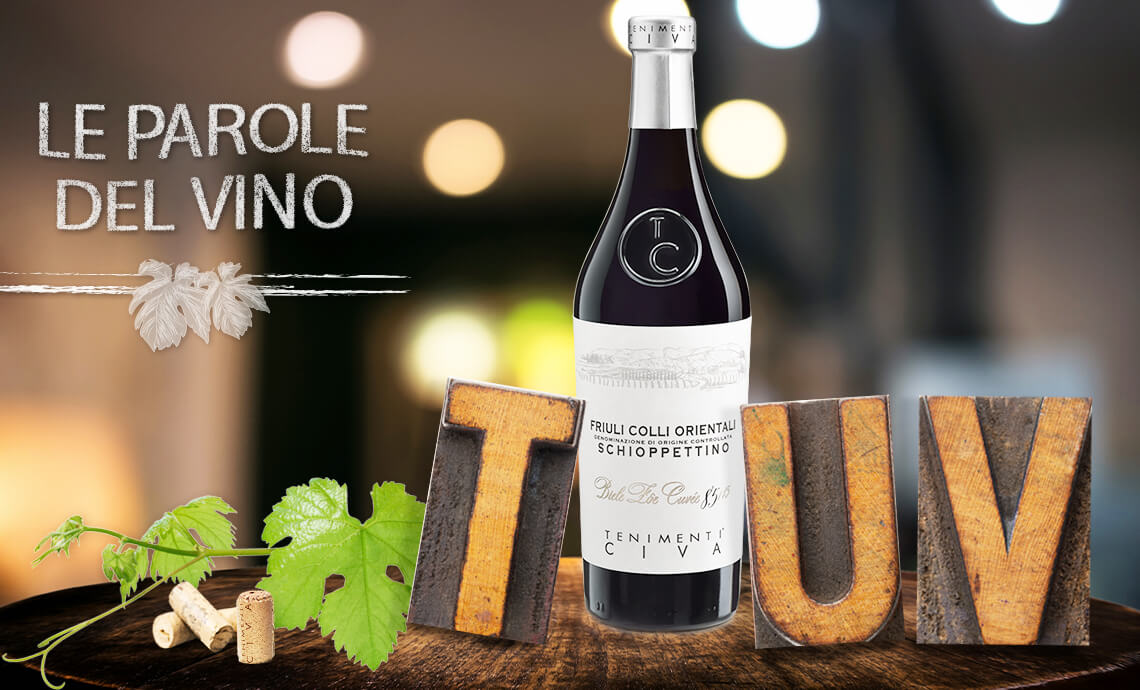 WORD “T”
WORD “T”
Tannic: rich in tannins, and harsh on the palate, as is often the case in young wines. Presupposes quality.
Tarry: said of a wine that gives sensations of tar and liquorice root on the palate, but also on the nose.
Tart/Sharp: rough and lacking balance, a trait which is immediately sensed on the nose and in the mouth.
Toasty: said of a wine when notes of toast, smokiness, and toasted almonds can be perceived on the nose.
True-to-type: when the aromas clearly reflect the characteristics of the variety or vineyard.
 WORD “U”
WORD “U”
Unbalanced: while taking into account the type of wine you are tasting – since not all wines are distinguished by balance –, a wine is unbalanced if it displays a clear predominance of “soft” components (alcohol, glycerine, sugars, proteins) over “hard” components (acids, salts, tannins) and vice versa.
Unctuous: synonym of oily
Unripe: refers to a wine that is acerbic and not yet ready for drinking.
 WORD “V”
WORD “V”
Vegetal: describes a wine whose aromas are reminiscent of grass, leaves, hay, humus, green olives, mushrooms etc.
Velvety: said of a wine that offers a pleasant mouthfeel, almost like a caress.
Vigorous: refers to a wine that shows energy, sinew and power (often in terms of alcoholic strength).
Vino da meditazione: a wine whose traits are such that it can also be enjoyed without food.
Vino novello: wine obtained using the technique of carbonic maceration.
Viscous/dense: refers to a wine that displays little suppleness when rotated in the glass. Viscosity depends on levels of extract (in particular glycerine) and alcoholic strength.
 WORD “W”
WORD “W”
Warm: refers to the impression of pseudo-heat perceived when tasting a wine caused by the presence of alcohol. Although noticeable, this sensation must not dominate.
Watery: refers to a wine that gives the impression of having been watered down. May also refer to a wine lacking structure.
Weak: describes a wine whose alcoholic strength is disproportionately low compared to its other components, or a wine lacking body and taste.
Well-balanced: said of a wine whose individual parts are well proportioned; in other words, its soft components (sugars, alcohol, glycerine) are not overwhelmed by its hard ones (acids, salts, tannins, bitter substances) and vice versa.
Well-rounded: used to describe a wine which is both full and soft.
Well-typed: refers to a wine that displays the sensory characteristics typical of the types of wines produced in a given area.
 WORD “Y”
WORD “Y”
Youthful: describes a wine whose characteristics (appearance, aroma, taste) show evidence of relatively recent vinification.

